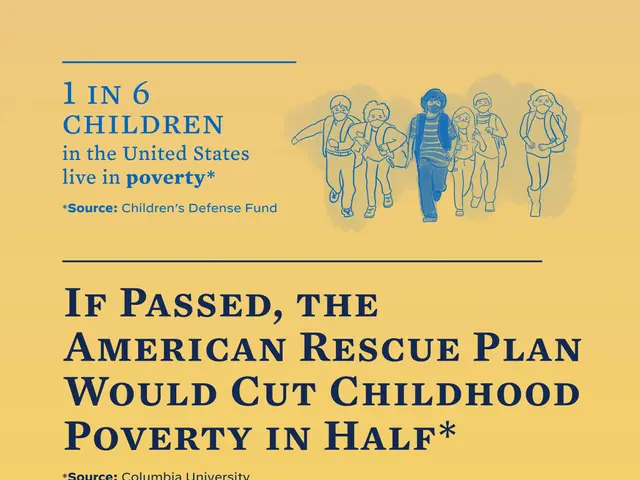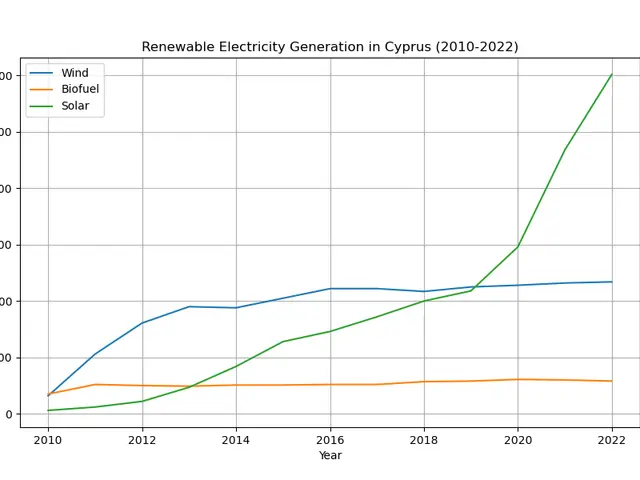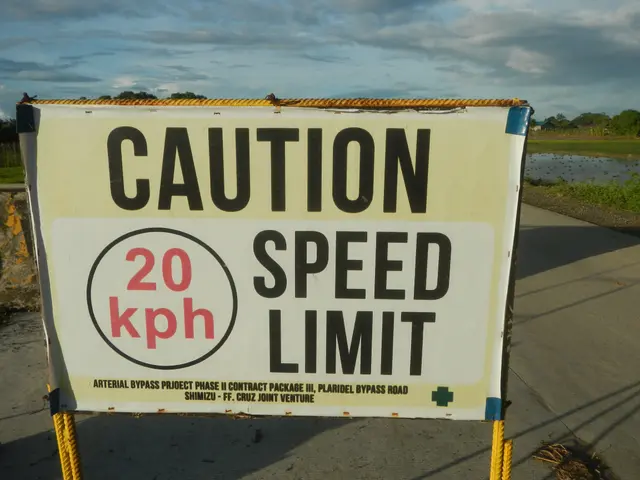Georgia Faces Legal Challenge Over Website Age Verification for Minors
Georgia's Social Media Parental Consent Law Faces Legal Challenge
In the heart of Atlanta, Georgia finds itself at the center of a contentious legal battle over its new law requiring parental consent for under-16s to use social media. Tech industry group, NetChoice, filed a lawsuit in the U.S. District Court for the Northern District of Georgia, asserting that the law unlawfully hinders access to protected speech and forces users to disclose private data.
The lawsuit, filed on May 1, 2025, claims the law, dubbed SB 351, imposes content-based restrictions by targeting specific online platforms and activities, such as creating profiles or sharing posts. Courts have previously invalidated similar laws, like Ohio’s Social Media Parental Notification Act, citing overbreadth and violations of free speech.
NetChoice, representing companies such as Facebook and Instagram, argues that the law creates undue privacy risks by necessitating users to submit sensitive identification documents for parental consent and age verification. The suit seeks injunctive relief before SB 351's July 1, 2025, effective date.
Critics argue that the law's parental-consent and verification requirements could potentially lead to privacy violations. The legislation has already faced legal challenges in other states, with courts ruling in favor of NetChoice in Arkansas and Ohio, declaring parental consent mandates unconstitutional. Cases in Tennessee and Louisiana are ongoing.
Despite these concerns, Georgia officials have declared they will defend the measure. Georgia Attorney General Chris Carr, a Republican running for governor in 2026, stated that the industry would rather file a lawsuit than collaborate to protect children from online predators. State Senator Jason Anavitarte, the bill's sponsor, has vowed to continue working to provide parents with tools to keep their kids safe online.
It is worth noting that social media companies already ban children under 13 from signing up for their platforms to comply with federal regulations. "Parents have many existing tools they can choose from to regulate their minor children's use of the internet," the lawsuit states.
However, kids have been shown to circumvent these bans, with up to 95% of teens aged 13 to 17 reportedly using social media platforms, with over a third using them "almost constantly."
As the legal proceedings unfold, the outcome of this case may set a precedent for similar laws across the nation.
Most Read Business Stories
- Why Alaska Air wants Portland to be its Sea-Tac 'relief valve'
- Emptier ports, shortages, higher prices: Latest tariffs may really hit home in next 2 weeks
- Phoebe Gates - Melinda and Bill's daughter - gets wired
- May Day 2025: Upstart unions at Seattle's Amazon, Starbucks, REI enter the Trump era
- Tariff tit-for-tat has Seattle waiting for the ships to come in
- The new social media parental consent law in Georgia, specifically SB 351, is being challenged legally by NetChoice in the U.S. District Court for the Northern District of Atlanta.
- Tech companies like Facebook and Instagram, represented by NetChoice, claim that Georgia's SB 351 unconstitutionally inhibits access to protected speech and forces users to disclose private data.
- Critics argue that the law's parental-consent and verification requirements could potentially lead to privacy violations, similar to legal challenges faced in Arkansas, Ohio, and ongoing cases in Tennessee and Louisiana.
- Despite these concerns, Georgia officials, including Attorney General Chris Carr, have declared they will defend the measure, stating that the industry prioritizes lawsuits over collaboration to protect children from online predators.
- In the realm of policy-and-legislation and politics, the outcome of this case may establish a significant precedent for similar laws across the nation, particularly regarding general-news, policy-and-legislation, and crime-and-justice.
- On a wider business front, Seattle-based companies like Alaska Air are dealing with their own challenges, such as relying on Portland to serve as a 'relief valve' amidst a possible impact of latent tariffs on their business practices.







